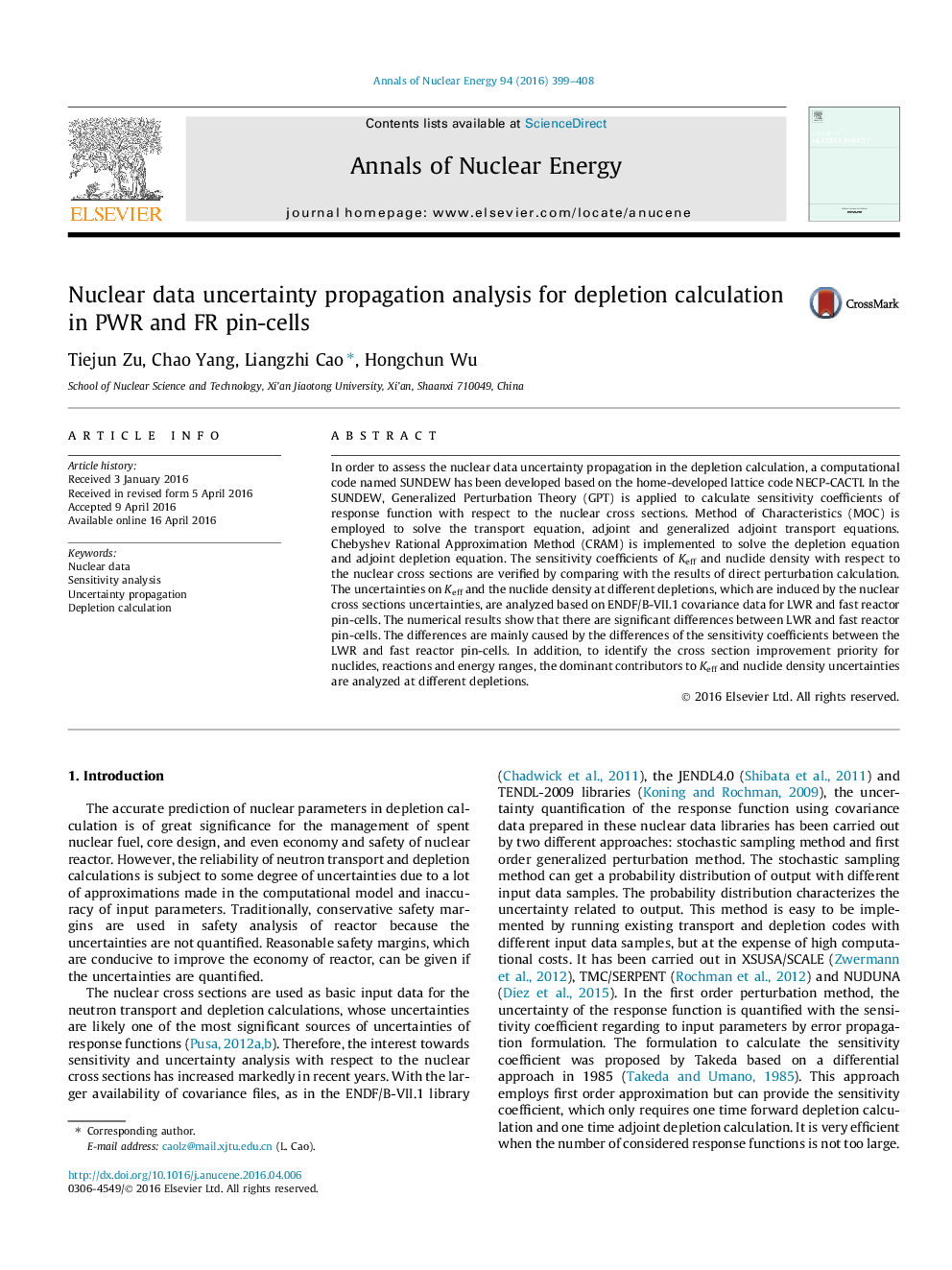| Article ID | Journal | Published Year | Pages | File Type |
|---|---|---|---|---|
| 8067722 | Annals of Nuclear Energy | 2016 | 10 Pages |
Abstract
In order to assess the nuclear data uncertainty propagation in the depletion calculation, a computational code named SUNDEW has been developed based on the home-developed lattice code NECP-CACTI. In the SUNDEW, Generalized Perturbation Theory (GPT) is applied to calculate sensitivity coefficients of response function with respect to the nuclear cross sections. Method of Characteristics (MOC) is employed to solve the transport equation, adjoint and generalized adjoint transport equations. Chebyshev Rational Approximation Method (CRAM) is implemented to solve the depletion equation and adjoint depletion equation. The sensitivity coefficients of Keff and nuclide density with respect to the nuclear cross sections are verified by comparing with the results of direct perturbation calculation. The uncertainties on Keff and the nuclide density at different depletions, which are induced by the nuclear cross sections uncertainties, are analyzed based on ENDF/B-VII.1 covariance data for LWR and fast reactor pin-cells. The numerical results show that there are significant differences between LWR and fast reactor pin-cells. The differences are mainly caused by the differences of the sensitivity coefficients between the LWR and fast reactor pin-cells. In addition, to identify the cross section improvement priority for nuclides, reactions and energy ranges, the dominant contributors to Keff and nuclide density uncertainties are analyzed at different depletions.
Related Topics
Physical Sciences and Engineering
Energy
Energy Engineering and Power Technology
Authors
Tiejun Zu, Chao Yang, Liangzhi Cao, Hongchun Wu,
